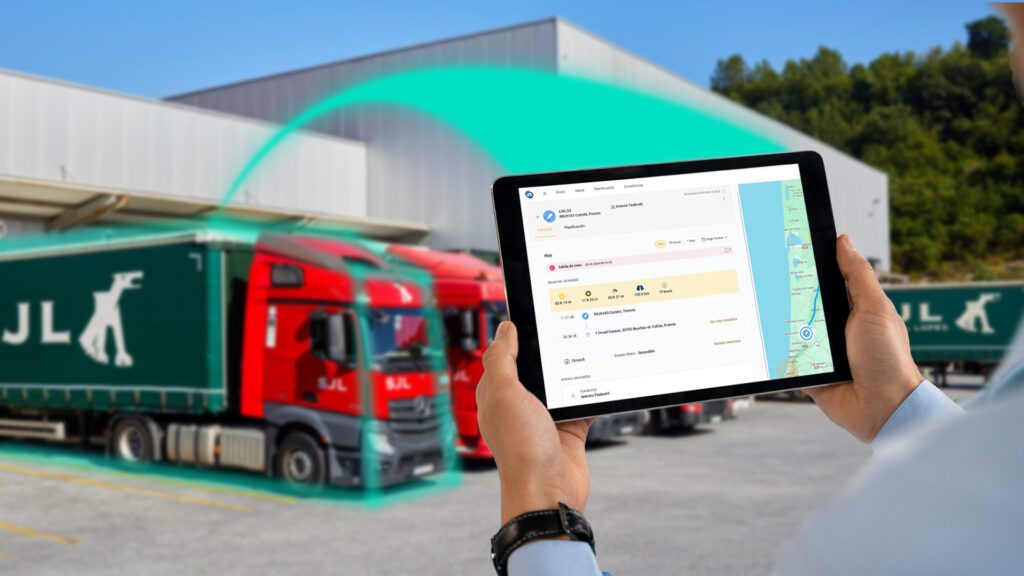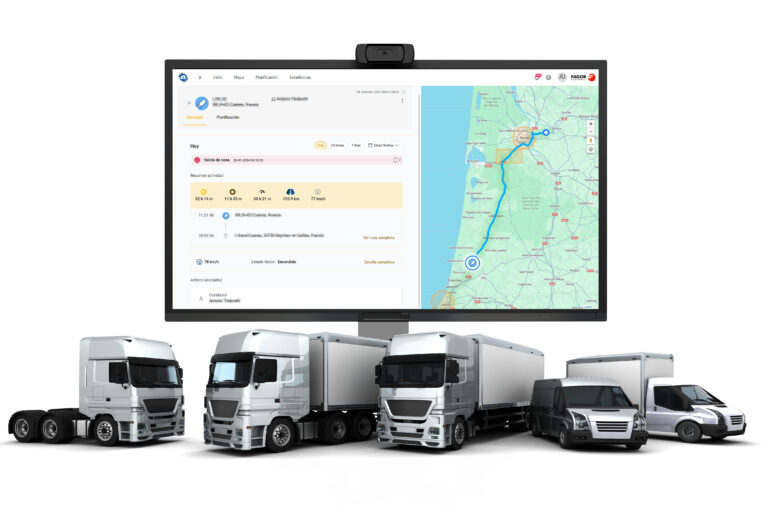Data has become one of the most precious assets for businesses today. A large majority of companies are already implementing data governance systems, which allow them on the one hand to collect all the data generated in the activity, for its subsequent use and processing, and on the other hand, to strengthen the cybersecurity systems that are so necessary in today’s fully interconnected world.
Within sectors such as transport, logistics or distribution, one of the main sources of data generation comes from their operations, both on the traffic/administration side and that generated in fleet management and control.
Real-time fleet monitoring is already an essential necessity for those who carry out distribution activities. The real-time location of the fleet allows operational staff to work with detailed and immediate information, so they can make decisions on changes in a very short range of time and with the least impact for the rest of the distribution network and, of course, for the end customer.
What to do with the data generated
Fleet managers such as FlotasNet, in addition to allowing optimised planning of the distribution routes of our fleet of vehicles and allowing control with real-time location of the fleet, generates a volume of data and information that, if used correctly, can allow companies to make important decisions with a high impact due to the cost reduction that this will entail.
FlotasNet provides managers with absolute vehicle monitoring, transferring information to the application not only on potential incidents that may be occurring on the route, but also data relating to the driving style, fuel consumption or the mechanical situation of the vehicle itself.
In addition to having the data in real time, the accessibility of these data allows the company to carry out a detailed study of the fleet, detect areas and situations for improvement and adopt decisions that allow it to redirect the situation, as well as generate a profit.
Fuel control: reducing costs and improving operational efficiency
One of the most striking aspects of using the data provided by the fleet manager in real time focuses on monitoring fuel consumption. This is one of the main costs borne by transport or distribution companies, so intervention to control and reduce it has a direct and immediate impact.
Being able to monitor the fuel consumption of vehicles in real time and detect any anomalies that may indicate unauthorised use or fuel wastage resulting from inefficient driving or poor route planning is a reality for operations teams through the functionalities that can be accessed in FlotasNet. By proactively identifying and addressing these issues, we will not only be reducing our costs, we will also be increasing the quality of service we provide to our customers.
We must bear in mind that these decisions are supported by the high quality of the data that the fleet manager provides in real time.
Issues that can be resolved quickly and efficiently
The functionalities of real-time fleet managers make it possible to attack and solve other types of incidents that occur on a day-to-day basis, efficiently, quickly and effectively.
For example, en-route incidents are inevitable in the world of transport and distribution, no matter how hard the industry tries to drastically reduce their occurrence. From accidents on the road or highway to unexpected route diversions due to inclement weather, a variety of problems can arise that affect the timely delivery of goods in the time and manner contracted by the customer. This is where real-time fleet monitoring proves its value. It enables fleet managers to quickly detect and respond to any issues that arise, minimising the impact on the operation and ensuring customer satisfaction.
Changing routes, modifying deliveries or providing real-time feedback to the customer have become an almost mandatory action for distribution companies nowadays, which is why it is essential to have real-time control of the fleet.
In other sectors with other types of loads, such as perishable products or pharmaceuticals, maintaining a controlled temperature is not only essential, we are even talking about a legal requirement from the point of view of health and quality. In addition to the monitoring we have already discussed, real-time fleet control allows the temperature of the cargo to be recorded at all times.
By linking the refrigeration systems and their data in the fleet manager, it is possible to locate any alteration that may occur in the temperature of the transported goods, guaranteeing at all times that the cold chain is not broken, maintaining quality and safety standards throughout the transport.
Conclusion
Real-time fleet monitoring is an essential component of an efficient and cost-effective logistics operation. Facing the daily distribution task with all the elements and data is essential to be able to have visibility and control over the location of our fleet, know and control fuel consumption, detect and solve en route incidents that may occur or detect if the cold chain is broken, allowing companies to optimise their processes, reduce the uncertainty of daily work and the stress on operational teams, as well as reducing costs and improving customer satisfaction. Translated with www.DeepL.com/Translator (free version)
In a world where every minute counts, real-time fleet management is a key to success in freight transport and distribution.


Carlos Zubialde
Specialist Transport and Logistics Consultant



